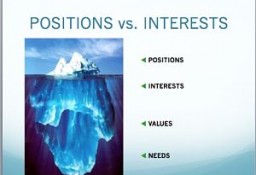As a certified job change expert, I am an advocate of a two-pronged approach to Job Search: be passive online and pro-active offline. During this holiday season in Ottawa and elsewhere, here’s 4 job change advice tips to increase your chances of landing a good job, changing to a better job, or advancing your career with your current employer.
1. Go to office parties, professional association year-ends, social club celebrations, neighborhood gatherings. People are almost always in a good mood during this festive season, more open to conversation, more relaxed about sharing their professional goals and corporate challenges. Use this time to build rapport with people who have the power to hire you or network for referrals to people who can. Networking is not rocket science but it is a skill. You’ve already learned many skills in your life, learn this one too! It has a great Return on Investment of your time and energy.
2. Get into conversations that can be converted to job offers. Keep the business talk light but focused, or make a date to talk in more depth after the holidays. Listen for cues, e.g. planned expansions, new projects, progress blockers, and all the issues that generate work in an organization. New business goals and priorities always face challenges, problems, issues and pressures–discussions around priorities vs challenges is where you next job offer will formulate. Gather information, take a few minutes to record notes on your phone, or write them down on a card. Then take some time over the holidays to think about what you’ve heard. Many organizations are preparing to hire in the New Year. You probably won’t start your new job during the holiday season, but it’s quite possible to receive an offer early the next year.
3. Follow up in a few weeks time. Don’t mix business with pleasure. Use the social gatherings at the end of the year to build rapport, then follow up in a business-like manner early in the New Year. Use the info you gathered during the social events to formulated some talking points, ideas that address some of the opportunities and challenges you heard about. The seeds you plant at parties can pay off big time by the time the next hiring season rolls around in Spring2015. Use social media not to establish rapport but to maintain the rapport you developed face-to-face at the holiday get-togethers. Send a message to these contacts inviting them to coffee or lunch reminding them what you talked about during the holiday season or raising an issue that you think might be interesting to talk about.
4. Be prepared. Luck favors those who prepare ahead of time, so learn to interview now before you go to parties because informal chitchats at parties can quickly convert into (in) formal interviews. Hiring is driven by the needs and priorities of a manager. Learn how to tap into those needs and leverage them into a job offer. Just this week I heard from a client in Florida who’d been seeking a position as an IT Project Manager. He’d sent out 50+ resumes and had 8 interviews but no job offers when he hired me to give him interview coaching. We reviewed his interviews, and I could clearly see what he needed to improve in his interview performance. After one session of coaching, his next interview resulted in an excellent job offer with a major telecom firm!












